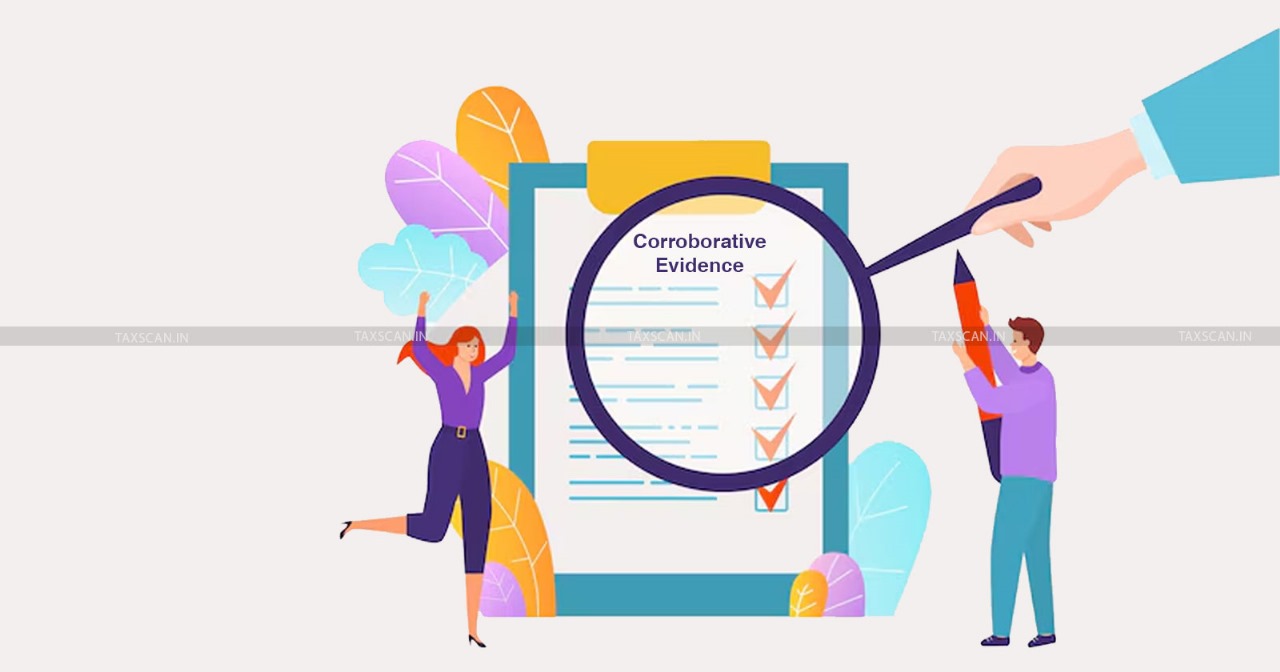Lack of Corroborative Evidence for Criminal Conspiracy and Bribery: Delhi HC quashes FIR against CA [Read Order]
It was alleged that the CA had conspired with a middleman to secure a $20 million loan from Syndicate Bank by bribing its Chairman and Managing Director

Lack of Corroborative Evidence – Corroborative Evidence – Corroborative Evidence for Criminal Conspiracy – Criminal Conspiracy – Criminal Conspiracy and Bribery – taxscan
Lack of Corroborative Evidence – Corroborative Evidence – Corroborative Evidence for Criminal Conspiracy – Criminal Conspiracy – Criminal Conspiracy and Bribery – taxscan
The Delhi High Court recently quashed a First Information Report (FIR) registered against Chartered Accountant (CA), who was working as a financial consultant for Prakash Industries Ltd. (PIL), upon observing the lack of corroborative evidence to prove allegations of criminal conspiracy and bribing.
The factual matrix follows Prakash Industries Ltd., a company engaged in coal, iron, steel, and energy sectors, sought a Foreign Currency Convertible Bond (FCCB) loan worth USD 50 million under the External Commercial Borrowing (ECB) guidelines of the Reserve Bank of India (RBI).
India’s New Tax Era Begins – Are You Ready for the Changes? Click Here
The Central Bureau of Investigation (CBI) later registered an FIR under Sections 9 and 13(2) of the Prevention of Corruption Act, 1988, and Section 120B (criminal conspiracy) of the Indian Penal Code, 1860.
The CBI alleged that PIL, through its Financial Consultant Vipul Agarwal and Chairman Ved Prakash Agarwal, had conspired with middleman Pawan Bansal to secure a $20 million loan from Syndicate Bank by paying a bribe of ₹3.25 crore through illegal channels its then Chairman and Managing Director, Sudhir Kumar Jain.
Worried About SME IPO Pitfalls? Gain Clarity with This Advanced Course! Register Now
Read More: CBI Arrests Delhi CGST Superintendent for Accepting Rs. 13,000 Bribe
Senior Advocate Vikas Pahwa, Gurpreet Singh, Amir Khan, Shivam Tandon, Namisha Samshi, Shivam Tandon, Kunal Aggarwal and Ali Kazi appearing for Prakash Industries contended that the allegations were based solely on call data records (CDRs) and intercepted conversations, which lacked independent corroboration.
He contended that routine business communications could not be construed as proof of criminal conspiracy, especially when no direct evidence linked Agarwal to any illegal payment. Furthermore, the defense highlighted contradictions in witness statements, particularly in that of Uday Shankar Majumdar. The General Manager of Syndicate Bank. It was alleged that the general manager admitted to processing the loan under pressure but did not explicitly implicate Agarwal in any wrongdoing.
India’s New Tax Era Begins – Are You Ready for the Changes? Click Here
Special Public Prosecutor Ripudaman Bhardwaj, Kushagra Kumar, Abhinav Bhardwaj and Vishal Baliyan appearing for CBI reiterated that Agarwal was instrumental in carrying out the conspiracy, regularly coordinating with Bansal to expedite the loan approval, including having taken assistance from PIL employees to facilitate the loan.
Read More: Fixed Charges under Loan License Agreement Not Taxable Separately as Declared Service: CESTAT
The single bench of Justice Chandra Dhari Singh observed that “Mere telephonic conversations between parties involved in a business proposal cannot be construed as evidence of a criminal act unless accompanied by substantial proof indicating mens rea”. The court further observed that no financial trail, bank records, or direct evidence proved Agarwal’s involvement in bribing Jain.
Reiterating that a criminal conviction requires a higher threshold of evidence and that the prosecution failed to demonstrate Agarwal’s direct involvement in the alleged bribery scheme, the Bench concluded that the FIR could not be sustained and accordingly quashed the proceedings against him.
To Read the full text of the Order CLICK HERE
Support our journalism by subscribing to Taxscan premium. Follow us on Telegram for quick updates


